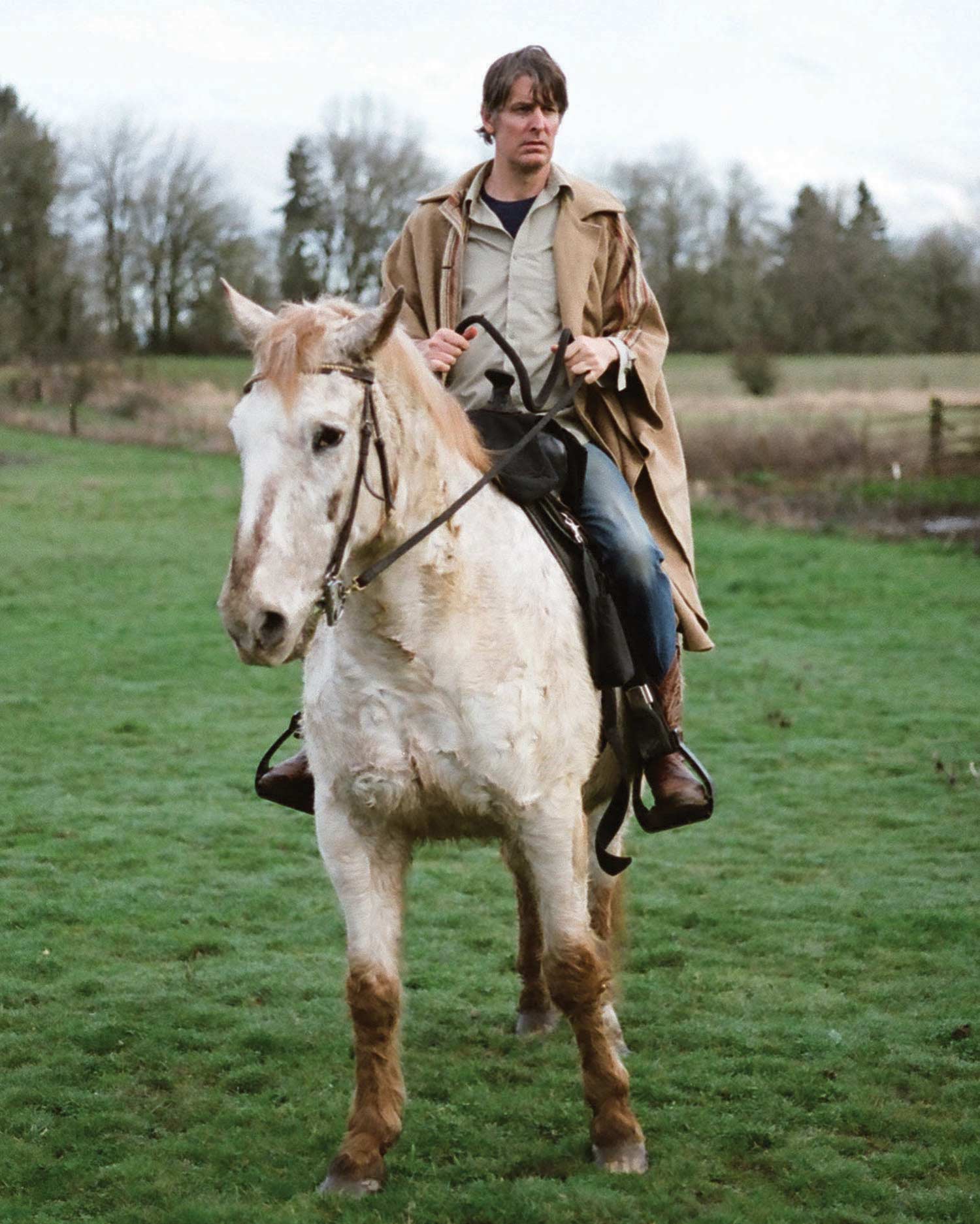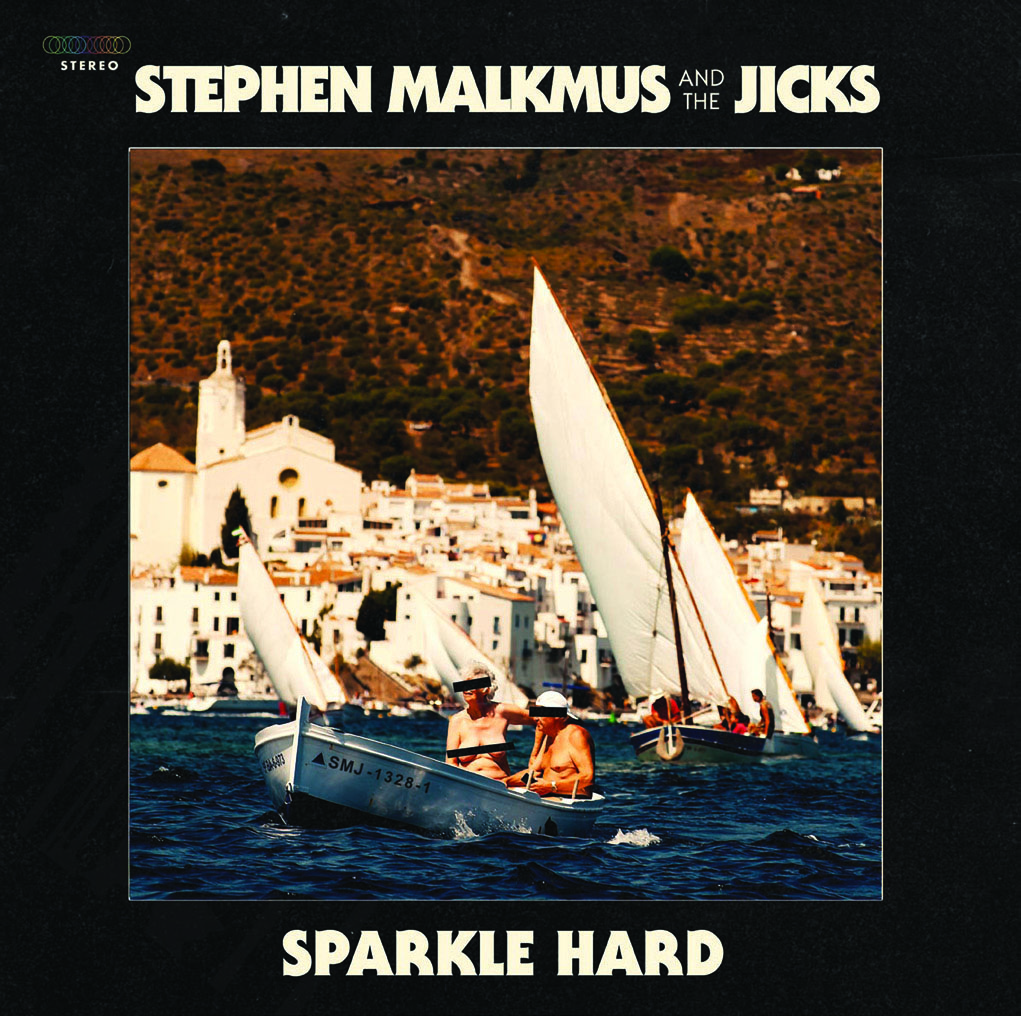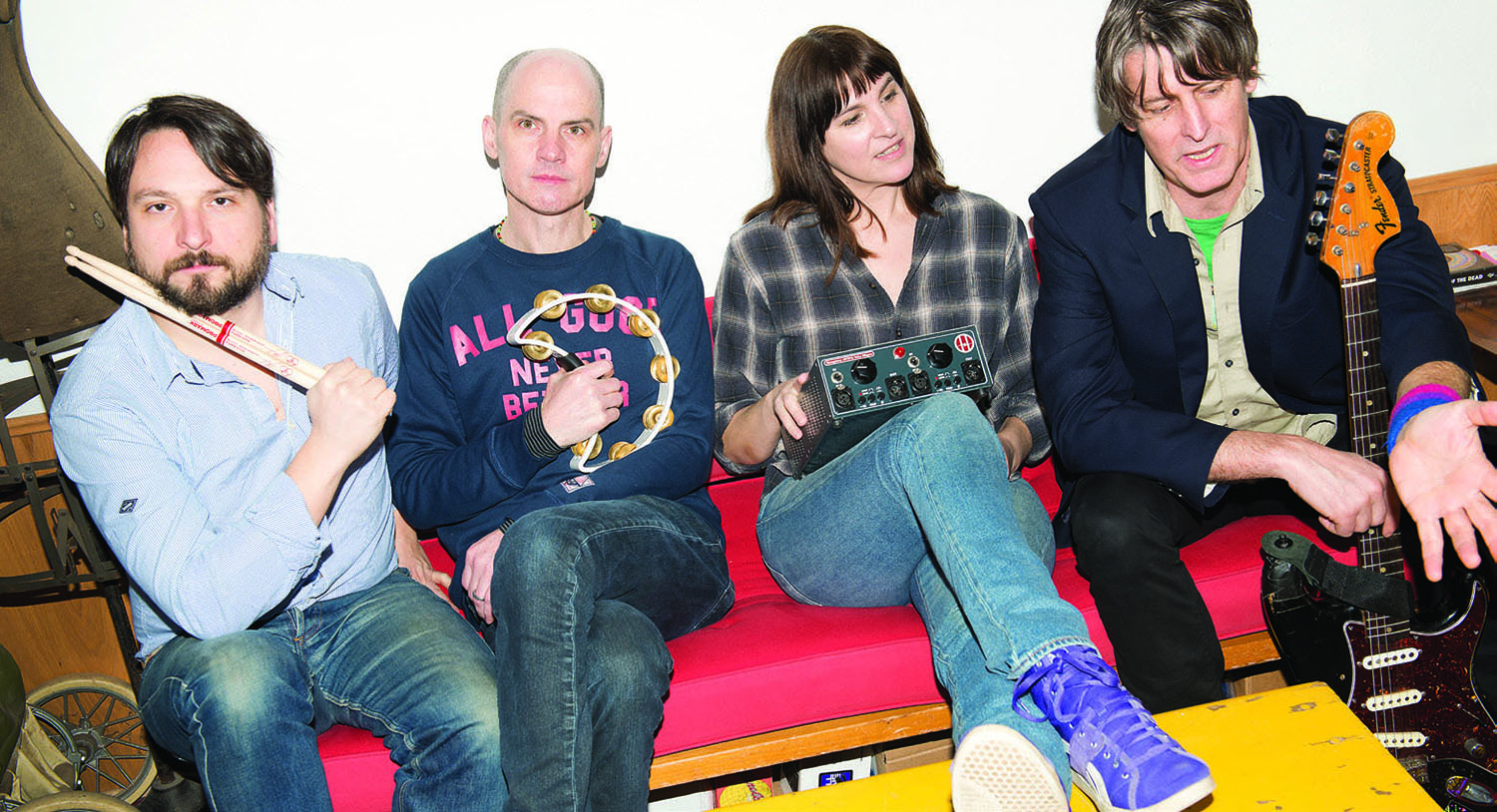Stephen Malkmus Talks Pavement-Era Gear, Alternate Tunings and New Jicks Album, 'Sparkle Hard'
He made alternative rock history with Pavement and the Jicks, but what do Guitar World readers really want to know about Stephen Malkmus?
He made alternative rock history with Pavement and the Jicks. He wrote the score for the Netflix series Flaked. His latest album with the Jicks, Sparkle Hard, is rife with big guitar hooks and thoughtful songcraft. But what Guitar World readers really want to know is...

Of all living guitarists, who would you most like to sit down and improvise with all day? —Gavin Kotze
There are so many good guitarists, its’ hard to say. Among old guys, Neil Young is a great player. Dean Ween from Ween, he’d be awesome to play with. Ian MacKaye from Fugazi would be really interesting. Someone bizarre like that. Eddie Hazel from Funkadelic would be cool too—if only he was still alive. That would have been quite a groove. Can you imagine?
How many guitar parts do you have going in the solo at the end of the song “Kite” from your new album, Sparkle Hard? —Mort Wilson
Just two. Sometimes three. They’re all first takes. I was almost just getting warmed up on it. I hadn’t mapped out anything to do, in terms of what kind of vibe I wanted. I had some ideas from the demo I made, but I didn’t play them the same way on the final track. So it’s literally three takes. I’ve done a lot of punching in and comping solo tracks in my time. But this time I thought, “Let’s just keep it fresh.” I find if you’re soloing over a really simple pattern—two or three chord changes—you can go anywhere.
What could be a Malkmus signature guitar pedal? What brand? What kind of effect? —Yann (from France)
It’s hard to imagine that. I don’t overdose on pedals. I like pedals because they’re relatively affordable these days. For $100 you can have some kind of quick fun with them. Just a cheap thrill. So mine would be affordable. I always remember those DigiTech Whammy pedals. I used to have one of those. But I think Jack White kind of took over using them. But something like that would be fun—being able to change the pitch like that.
Get The Pick Newsletter
All the latest guitar news, interviews, lessons, reviews, deals and more, direct to your inbox!
One thing I can say about naming it is, I went to see this exhibit in Oregon of fishing lures in all these wild colors. One was called Crippled Herring. I would like to call my pedal Crippled Herring. I guess it would look sort of like a damaged fish. I could imagine just stepping on that and getting my mind blown. Fishing lures are really brightly colored. You could use the same idea to snare young guitar players.

How did your Guild [S-100] Polara come into your world? —Moute (from France)
I just saw someone playing it and thought it was really cool. It’s thin, with an SG shape and a long fretboard. Very light. I like guitars that aren’t heavy. Everyone else was playing SGs, so I didn’t need to. I just thought the Guild was a cool alternative. When you see everyone doing the same thing, it’s time to try something else. The Guild was also affordable by some standards—$1,100 or something like that. I don’t treat my guitars with the respect some of them deserve. I hunt around the lower echelons of the market for new guitars.
Can you explain how your friendship with [Radiohead multi-instrumentalist] Jonny Greenwood started? —Christopher Cann
It started through Nigel Godrich, this amazing producer who is basically the architect of the sound of Radiohead. He also worked with Pavement on our last album, Terror Twilight. We were in London, and he said, “Jonny and the whole band really love you guys.” Which was nice; I love them too. And we thought it would be nice to have harmonica on these songs we were working on. Nigel said, “I can get Jonny in.” Among his other gifts, he can sound like he’s from Mississippi in 1940 or something.
So that’s how I first met him. And also, we went on tour with Radiohead for their Hail to the Thief album and got to hang out with him and the band. He just seemed to be a very talented guy.
Pavement made it pretty clear that the Fall had an enormous influence on them. Mark E. Smith, vocalist form the Fall, made no secret that he was unimpressed by the band. How was it to have Smith talking that way about you and the band? —Yolanda Lemos
It doesn’t hurt. It doesn’t make me think or feel less of myself. Not that I’m a total narcissist, but my ego is OK with discussion. I don’t take it personally. Acknowledgment of any sort—I’ll take it. He was forced to think about us, which is nice. Take what you can get from Mark E. Smith.
The feeling I get when I listen to the Fall is nostalgic at this point. It puts me in a specific time frame. Even though the band went on forever, my relationship with them is really kind of narrow, like 1985 to 1989, when I was listening to their older things and newer stuff. I felt, “This is really refreshing.” But I guess refreshing isn’t really a word you’d use for the Fall. Liberating, let’s say. They had an attitude of, “We don’t care. We’re the Fall; fuck you.” The Velvet Underground had a similar vibe. I related to that at that time in my life.

What pedals were used on [Pavement’s] Slanted and Enchanted? You used a Turbo Rat live in the early days, right? You’re the best. —Jeremy Shaw
Slanted and Enchanted was pretty much just a Rat. I had another pedal. I don’t remember who made it. All I know is that it was orange and it was a total Guitar Center-type pedal. And when you would step on it and keep your foot down, it would sustain endlessly. I though that was pretty cool. Other than that, I don’t think I had anything else. I had this little Epiphone amp that my friend’s grandfather, or his dad, had had forever. That was the primary amp, other than Scott Kannberg had this solid-state Fender amp, which I would not recommend. Also maybe there was a Twin Reverb lying around. Basic stuff, you know?
Steinberger guitars are also used on songs, like “Perfume-V,” with some whammy bar action. That was because the drummer for Pavement, Gary Young, his father worked in plastics and had designed the mold for those guitars. So Gary got some free ones. There was a Steinberger bass and some guitars. I was like, “I’ll try those. As long as no one sees me doing it, who cares?”
Alternate tunings are such an important part of your unique sound. What led you to start experimenting with different tunings, and how did you develop the ones you use most often? —Steve Wills
I started really simple, like everyone, just dropping the E string to D. That’s a really good place to start. It gives you a little tougher sound in your barre chords. In Pavement, we didn’t have a bass guitar on the early recordings. So tuning down gave us a lower sound but also a fullness to the sound. That’s where I started. Then I simplified even more by bringing my G string up to A. I did a lot of things like that.
And then I read about Keith Richards and his open G, kind of blues tuning. It’s a very simple tuning, and that led to a lot of songs in Pavement. And then I just thought, “There’s so much more I can do with this. So I started doing variations, primarily on D and G tunings. Just tuning other strings in different ways and getting different intervals I could play. That’s how it happened. It’s something I really recommend.
I get teary-eyed from many of your songs, like “Middle America,” “Zurich Is Stained,” “Freeze the Saints,” “Ramp of Death,” “Loud Cloud Crowd,” etc. What songs make you cry? —Nick A.
You sure picked all the tearjerkers. Sometimes songs by people who had a tragic end can be that way for me. Like Judee Sill; she had a hard life. There are songs where the backstory can bring things to an emotional level. “Helpless” by Neil Young can also be that way for me. Some Radiohead songs too. I guess I associate songs with the period when I first hear them. And when I first heard Radiohead’s OK Computer, I was in a self-pity moment. So it was like, “Oh, let’s be sad with this record.”
You’ve proven to be pretty spectacular at naming albums and songs. my wife and I are expecting our first child. what should we name the lad? —Josh Mclaughlin
Biblical names are always classic. They’re out of style, but maybe it’s time for them to come back. It really depends on what you’re into. Look into your family history and look for some kind of forgotten uncle who has a cool name. You’re welcome to any of our song titles also. Maybe you want to name him “Trigger” after “Trigger Cut”—if a horse comes out instead of a person. Or maybe Colt…
In a career that spans five decades, Alan di Perna has written for pretty much every magazine in the world with the word “guitar” in its title, as well as other prestigious outlets such as Rolling Stone, Billboard, Creem, Player, Classic Rock, Musician, Future Music, Keyboard, grammy.com and reverb.com. He is author of Guitar Masters: Intimate Portraits, Green Day: The Ultimate Unauthorized History and co-author of Play It Loud: An Epic History of the Sound Style and Revolution of the Electric Guitar. The latter became the inspiration for the Metropolitan Museum of Art/Rock and Roll Hall of Fame exhibition “Play It Loud: Instruments of Rock and Roll.” As a professional guitarist/keyboardist/multi-instrumentalist, Alan has worked with recording artists Brianna Lea Pruett, Fawn Wood, Brenda McMorrow, Sat Kartar and Shox Lumania.
“There’d been three-minute solos, which were just ridiculous – and knackering to play live!” Stoner-doom merchants Sergeant Thunderhoof may have toned down the self-indulgence, but their 10-minute epics still get medieval on your eardrums
“There’s a slight latency in there. You can’t be super-accurate”: Yngwie Malmsteen names the guitar picks that don’t work for shred


![A black-and-white action shot of Sergeant Thunderhoof perform live: [from left] Mark Sayer, Dan Flitcroft, Jim Camp and Josh Gallop](https://cdn.mos.cms.futurecdn.net/am3UhJbsxAE239XRRZ8zC8.jpg)







